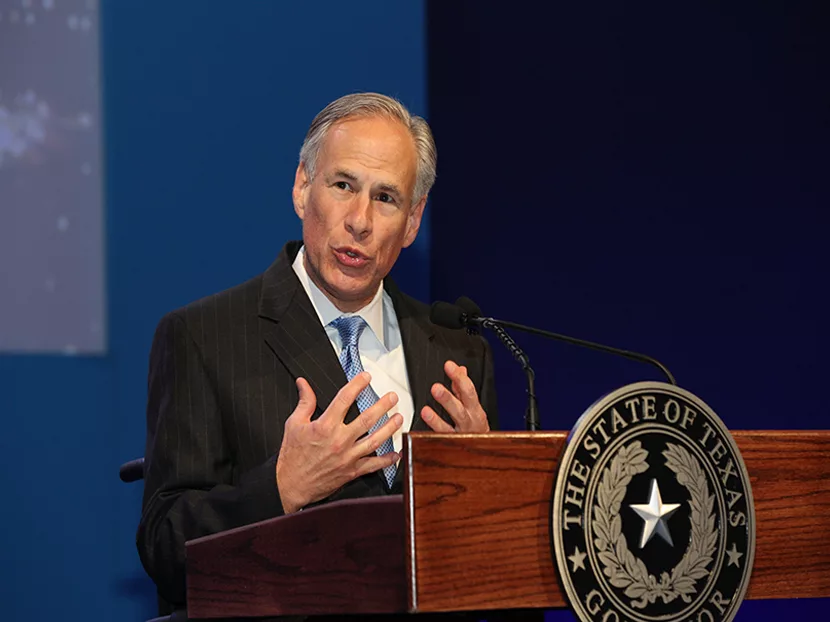By now, you’ve more than likely heard all about the events surrounding the plumbing industry in Texas. Although the situation isn’t exactly resolved – there is still a two-year delay to reassign the authority of the plumbing board – the gyrations of the Texas state legislature serve as a great example of when lawmakers focus on process over purpose.
But perhaps most important, it should signal a wakeup call (or at least a reminder) of the critical need for our industry to always partner with public policy makers (which I believe they do), and for public policy makers to keep discussions open with industry (which I believe they don’t) as they consider issues that will eventually affect people.
“The plumbing industry will always work to partner with lawmakers,” said Hunter Botto, vice president of the Plumbing-Heating-Cooling Contractors – National Association, at the plumbing industry rally on June 14 outside the Texas Capitol Building in Austin. “We are always ready to meet, provide information, educate and assist lawmakers in any way, so that they can make sound, responsible decisions impacting people.”
Public policy in America means many things to many people. The foundation of public policy, however, is the intention and formidable action that we, as a nation “have our citizens' backs.”
The vast majority of Americans don’t have a specific expertise in medicine, law enforcement or health and safety (to name a few), and we go about our lives, relying on those who create public policies to "have our backs" and create an environment conducive to the best interests of our families, our friends, our communities and ourselves.
Our drive should be to create and maintain policies that are in the best interest of good, hard-working people. Period. Sounds simple, but Texas serves as a great example of when lawmakers overlook these interests and focus instead on the process.
Here's an example: Many years ago when my three sons were very young, we had plans to go to a Baltimore Orioles baseball game for Father’s Day. I got into the driver’s seat and watched through the rear-view mirror as all three boys piled into the back of our minivan and into their respective seats. Before all three began their ritual of destroying the back seats with gummy bears and crackers, each one automatically, instinctively, systematically, without hesitation or thinking, buckled his seat belt.
No big deal, right? Wrong. You see, I grew up without seat belt laws. Years ago the National Safety Council embarked on a coordinated national campaign to implement (at the state level), a mandate for seat belts. The organization did this not to dictate to people, but rather because it had conducted safety research and understood that seat belts would save lives.
As a result, without anything I did and without any knowledge of the council’s research into seat belt safety, I am thankful to the lawmakers in my state of Maryland and to the NSC for having our backs and creating a safer ride for everyone on the road.
So, a lot of plumbers initially planned to show up for the June 14th rally to call on Gov. Greg Abbott to do something after legislators ended the current session and essentially eliminated the state’s plumbing code and the Texas State Board of Plumbing Examiners. Gov. Abbott, however, signed an executive order the day before the rally extending the activities of the board. The planned protest ended up turning into a celebration to thank the governor for delaying shortsighted plans that would have dismantled health and safety laws. The plan would have tragically resulted in the deterioration of water quality for Texans by dismantling plumbing licensure.
Yes, Gov. Abbott did what was right on behalf of the plumbing industry, but he had his citizens’ backs – in that he halted a plan what would have inevitably hurt Texans. There is much work to be done to resolve the situation. The rally was an excellent “teachable” moment – it is critical that lawmakers partner with industry to understand the potential consequences of their actions.
Heard on the Hill ...
Association Health Plans: Expanded Association Health Plans are good for small business. On Capitol Hill, there are bills in the House and Senate to create AHPs. In the House - a bill was introduced in early April (HR 2294 - "Association Health Plans Act of 2019"). To date though, there is no movement and few cosponsors. In the Senate - an identical bill was introduced (S 1170 - "Association Health Plans Act of 2019"). But, the same story, to date - no movement. Capitol Hill will soon be all about next year’s elections. It’s now or never for associations, organizations, small business to push these bills if there is any hope they will see the light of day.
House Passes DACA: If you're not familiar, the House recently passed HR 6 - the "American Dream and Promise Act" by a vote 237-187 with seven Republicans crossing party lines to join 230 Democrats in support. In essence, the bill allows "Dreamers" and Temporary Protected Status (TPS) beneficiaries to continue to reside and work legally in the U.S. The bill now goes to the Senate (where it is dead on arrival). Though the bill will not survive - the intent of the legislation needs to be understood. Dreamers and TPS would be protected if they are becoming viable, productive, tax-paying members of the United States. Then, they would have to go through the process of becoming legal citizens to stay and work.
In other words, you have to meet certain criteria to be protected. If you don't, you can't stay here.
If statistics are accurate, immigrants make up more than 25 percent of the construction workforce. It seems contradictory to complain about a lack of workforce in the skilled trades – yet work (or not advocate) to kick folks out who are (or who are becoming) productive members of their communities.





